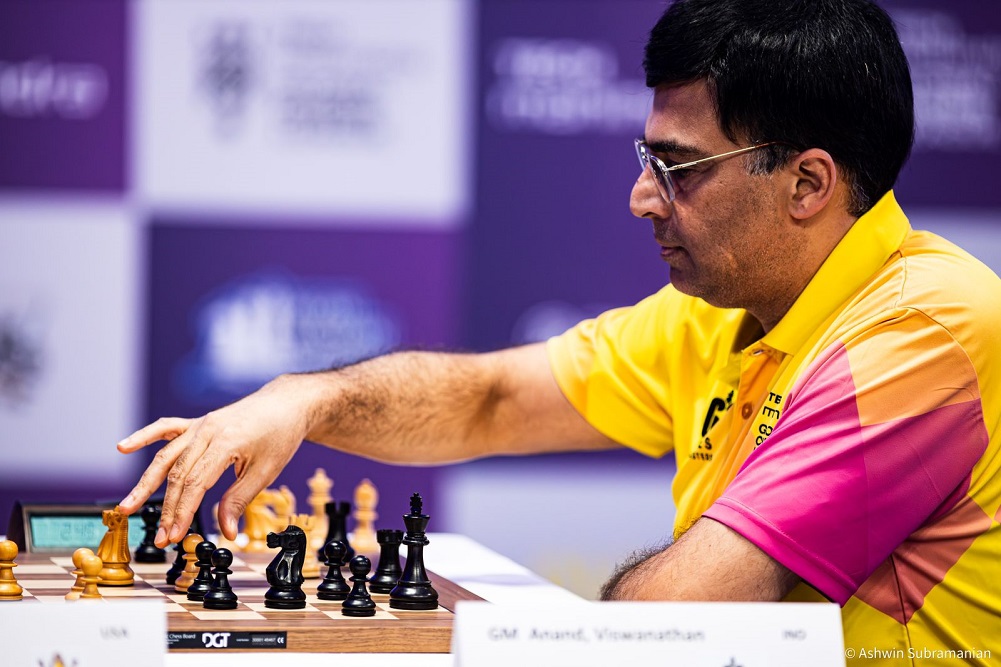Five-time World Chess Champion and Indian chess grandmaster Viswanathan Anand opens up about strategy, adaptability, patience, and his risk-taking ability in an exclusive interview
On the occasion of International Chess Day, ET Edge Insights spoke to Viswanathan Anand, The Man, The Legend. “Vishy” Anand, as he is affectionately known, has dominated the game of chess in India since 1988. During the conversation, we were introduced to a kind, unassuming genius who has left us pondering the immense self-control and focus that went into molding him into the person he is now.
Our conversation with him did not involve chess. Yes, you read it correctly. We began by stating, “We are not here to discuss chess, but rather the qualities of a good strategic leader, and who better to examine this than a five-time world chess champion!”
Excerpts from the interview
We start a project by determining its risks, rewards, and roadblocks. Can you talk about your pre and post game strategies?
Strategy is essentially getting yourself in the best possible shape and being ready to encounter any kind of situation. This requires you to define and understand your opponent. Once it’s defined, you practice all the scenarios. This seems easy in the ideal world, but do note that your opponent is also preparing to counter your tactics. Hence, my best strategy is to practice for all outcomes and Be Prepared.
Exhibiting strategic foresight is the main quality of any good leader, every game is different, and every player is different; hence, how do you determine the way the game plays out?
My Preparation starts with visualizing the three likely scenarios to be played out for every move and how it plays out. Visualization helps in being prepared for the likely 15–16 ways that the path will play out. The permutations and combinations are all there before you, and you have played out the scenarios before. You may be wrong, and will be too, but you are to give your best possible shot at all times.
Adaptability is a game changer, so is there room for impulsiveness and spontaneity in the game and can you change the strategy in the middle?
All of your pre-game preparation is about looking at different scenarios, being ready to play different plays, and being prepared for every scenario. Your adaptability is also something you prepare for. During my World Championship match, adaptability has helped me change strategy and be able to meet the unknown territory. You must be mentally ready for any kind of situation, and mental strength is the most important part of your mental makeup.
Patience: The next move does not need to be fast, but sure, can you talk about some of your slowest moves and what the plays and challenges involved were?
I am a player who plays fast, and I had to mentally train myself to take a deep breath, step back, observe, and come back. A goal can be elusive, like my initial grand master point, which I was missing for many months, but you hang in there, keep working and practicing, and suddenly it adds up to a significant change and suddenly you overshoot the norm. You work on something, but it takes a while for it to be evident. Long-term patience is the most important factor.
Risk-taking ability: A good CEO needs to change and understand risk, and who better than you to explain the same? Can you help us with some risky plays taken by your end?
In 2008, Instead of a Kings Opening game, I opened with a different tactic. It was a risk, an unfamiliar territory, and I would be having a handicap. I then opened differently and won. Hence, improvisation, adaptability, and all that does not mean that you should not be prepared for it. My risky move involved close to investing a year of practice on the move, and it played off brilliantly. I won. You can, too, be ready to try new things, but practice the way you react.
Aggressive play: Market conditions sometimes call for aggressive moves. Like in a game, is aggression effective in business? Can you talk about any specific game of yours that played out aggressively?
Instead of aggressiveness, look at optimisation, look at optimising strategy and bring surprises. That helps turn around your competition. The whole attitude is about looking at things from a different perspective and understanding that you need to step back sometimes and follow your inner hunch too.
Ethics: The most important differentiator, and can you talk about your view on the prevalence of online cheating in chess?
Online cheating is a problem, as there would always be an avenue open, but it’s more about what your long term strategy is, and that will help in determining your path. There is also a difference in the pattern, and there are measures in place, but again, cheating is cheating yourself .
Are there any promising future chess players from India that you see as potential champions?
Gukesh D is one of the higher ranking youngster, R Praggnanandhaa is another promising talent; and Sarin and Arjun, who are near the TOP 35–40.
To watch the full interview, click on the following link: https://www.youtube.com/watch?v=CzCuOVKakek&list=PLc6y-uHoGkuHIonDdgTvPHK1-sJ-lmfNk&index=2



